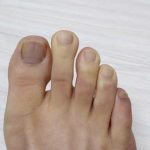
carbidopa – oral, Lodosyn
Medication Uses: Carbidopa is used with levodopa or the combination levodopa/carbidopa to treat Parkinson’s disease symptoms or Parkinson-like symptoms (e.g., shakiness, stiffness, difficulty moving). Carbidopa must be taken with levodopa to be effective. Used alone, carbidopa has no effect on Parkinson’s symptoms. It is used to improve the effect of levodopa and reduce some levodopa side effects (e.g., nausea, vomiting). Carbidopa is an enzyme blocker that prevents the breakdown of levodopa in the bloodstream. This allows more levodopa to enter the brain and decrease Parkinson’s symptoms. By helping more levodopa get into the brain, carbidopa can reduce some of levodopa’s side effects such as nausea and allow the doctor to increase the levodopa dose more quickly to find the best dose.
HOW TO USE: Take this medication by mouth with food along with your levodopa or levodopa/carbidopa doses, as directed by your doctor. If you are taking carbidopa for the first time, wait at least 12 hours after your last levodopa dose before starting this medication. Your doctor will usually reduce your levodopa dose when starting carbidopa to prevent side effects from too much dopamine. Be sure to follow your doctor’s instructions closely. Avoid high-protein diets because they may prevent absorption of this medication. Separate your dose of this medication by as many hours as possible from any iron supplements or products containing iron (e.g., multivitamins with minerals) you may take. Iron can reduce the amount of carbidopa and levodopa available to the body. Use this medication regularly to get the most benefit from it. Take it at the same times each day. Dosage is based on your medical condition and response to therapy. Consult your doctor or pharmacist regarding your dosing schedule. Do not stop taking this medication without consulting your doctor. Some conditions may become worse when the drug is quickly reduced or suddenly stopped. Your dose may need to be gradually reduced. (See also Side Effects section.) Inform your doctor if your condition does not improve or worsens.
SIDE EFFECTS: Side effects with carbidopa are rare and usually occur due to the effect of levodopa or other drugs used along with this medication. Consult the Side Effects information of the levodopa-containing product(s) as well as any other drugs you are using. If you have any questions or notice any effects, consult your doctor or pharmacist. Tell your doctor immediately if you notice worsening involuntary muscle movements/spasms, greatly increased eye blinking/twitching, or mental/mood changes (e.g., confusion, depression, hallucinations, thoughts of suicide). Your doctor may decide to lower your levodopa dose. Dizziness, nausea, and vomiting may occur. If any of these effects persist or worsen, contact your doctor or pharmacist promptly. Remember that your doctor has prescribed this medication because he or she has judged that the benefit to you is greater than the risk of side effects. Many people using this medication do not have serious side effects. Tell your doctor immediately if any of these unlikely but serious side effects occur: irregular heartbeat, fainting, unusual urges (such as increased gambling, sexual urges). Tell your doctor immediately if any of these rare but very serious side effects occur: easy bleeding/bruising, signs of infection (e.g., fever, persistent sore throat), tingling of the hands/feet, vision changes (e.g., blurred/double vision). Seek immediate medical attention if any of these rare but very serious side effects occur: chest pain, seizures, vomit that looks like coffee grounds, black/tarry stools. Abruptly stopping or reducing the dose of this medication may rarely cause a serious (sometimes fatal) condition (neuroleptic malignant syndrome). Seek immediate medical attention if any of these rare but very serious side effects occur: fast/shallow breathing, confusion, severe dizziness/fainting, high fever, muscle stiffness, unusual sweating. For males, in the very unlikely event you have a painful or prolonged erection (lasting more than 4 hours), stop using this drug and seek immediate medical attention or permanent problems could occur. A very serious allergic reaction is unlikely, but seek immediate medical attention if it occurs. Symptoms of a serious allergic reaction include: rash, itching/swelling (especially of the face/tongue/throat), severe dizziness, trouble breathing. This is not a complete list of possible side effects. If you notice other effects not listed above, contact your doctor or pharmacist.
PRECAUTIONS: Before taking this medication, tell your doctor or pharmacist if you are allergic to it or if you have any other allergies. This product may contain inactive ingredients that can cause allergic reactions or other problems. Talk to your pharmacist for more details. This medication should not be used if you have certain medical conditions. Before using this medicine, consult your doctor or pharmacist if you have a certain eye problem (narrow-angle glaucoma). Before using this medication, tell your doctor or pharmacist your medical history, especially of breathing problems (e.g., asthma, emphysema), a certain eye problem (wide-angle glaucoma), heart or blood vessel problems (e.g., arrhythmias, heart attack, angina), kidney disease, liver disease, mental/mood disorders (e.g., depression, schizophrenia), peptic ulcer, seizure. This drug may make you dizzy or cause blurred vision. Do not drive, use machinery, or do any activity that requires alertness or clear vision until you are sure you can perform such activities safely. Avoid alcoholic beverages. To minimize lightheadedness, get up slowly when rising from a sitting or lying position. Before having surgery, tell your doctor or dentist that you are taking this medication. This medication should be used only when clearly needed during pregnancy. Discuss the risks and benefits with your doctor. It is unknown if this medication passes into breast milk. Consult your doctor before breastfeeding.
DRUG INTERACTIONS: Your healthcare professional (e.g., doctor or pharmacist) may already be aware of any possible drug interactions and may be monitoring you for them. Do not stop or change the dosage of any medicine without checking with them first. Taking MAO inhibitors with this medication may cause a serious (possibly fatal) drug interaction. Avoid taking MAO inhibitors (isocarboxazid, linezolid, methylene blue, moclobemide, phenelzine, procarbazine, tranylcypromine) during treatment with this medication. Most MAO inhibitors should also not be taken for two weeks before treatment with this medication. However, certain MAO inhibitors (rasagiline, selegiline) may be used with careful monitoring by your doctor. Ask your doctor when to start or stop taking this medication. Before using this medication, tell your doctor or pharmacist of all prescription and nonprescription/herbal products you may use, especially all levodopa-containing products, medicine for high blood pressure (e.g., guanethidine, methyldopa, reserpine), antidepressants (e.g., tricyclics such as amitriptyline/nortriptyline), antipsychotics (e.g., chlorpromazine, thioridazine, risperidone), metoclopramide, phenytoin, papaverine, tryptophan (e.g., l-tryptophan, oxitriptan). This medication may interfere with certain laboratory tests (including urine glucose/ketone tests), possibly causing false test results. Make sure laboratory personnel and all your doctors know you use this drug. This document does not contain all possible interactions. Therefore, before using this product, tell your doctor or pharmacist of all the products you use. Keep a list of all your medications with you and share the list with your doctor and pharmacist.
QUESTION
OVERDOSE: If overdose is suspected, contact a poison control center or emergency room immediately. US residents can call their local poison control center at 1-800-222-1222. Canada residents can call a provincial poison control center. Symptoms of overdose may include irregular heartbeat, seizures. NOTES: Do not share this medication with others. Laboratory and/or medical tests (e.g., blood count, heart/kidney/liver function) may be performed to monitor your progress. People with Parkinson’s disease may have an increased risk for developing skin cancer (melanoma). Tell your doctor promptly if you notice a change in the appearance or size of moles or other unusual skin changes. Ask your doctor if you should have regular skin exams. MISSED DOSE: If you miss a dose, take it as soon as you remember. If it is near the time of the next dose, skip the missed dose and resume your usual dosing schedule. Do not double the dose to catch up. STORAGE: Store at room temperature between 59-86 degrees F (15-30 degrees C) away from light and moisture. Do not store in the bathroom. Keep all medicines away from children and pets. Do not flush medications down the toilet or pour them into a drain unless instructed to do so. Properly discard this product when it is expired or no longer needed. Consult your pharmacist or local waste disposal company for more details about how to safely discard your product. Information last revised February 2014. Copyright(c) 2014 First Databank, Inc.


